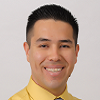It is rare to have a course on political science research methods for students in their first or second year at a college or university. For example, there are only 12 out of 114 community colleges in California that offer the course you just completed. At my undergraduate and graduate institution, the University of California, Merced, the political science program has one lower division course and one upper division course in political science research methods.
While rare now, it’s fair to expect that political science research methods will become a staple in most political science programs. With this course under your belt, what is the path forward now that you have introduced yourself to political science research methods? The path forward includes consulting with your professors, looking ahead to see what upper division courses may be available to you, and seriously considering earning a Master’s or doctoral degree in the discipline.
Your professor who taught the course will have a sense of additional opportunities that are available to you at your college or university. If your student had the community college your professor may consider offering individual or group research opportunities. This may be done informally by meeting once a week during office hours, or this can be done formally through a course such as special topics or individualized studies course. For example, when I was a student at Cerritos Community College, I completed 5 units of Directed Studies in Political Science in spring and summer of 2004.
While students at community colleges can’t take upper division courses since they are not offered at two-year institutions, they can certainly look ahead to their four-year institutions of interest to see what’s available. For students already at a four-year college or university, they should meet with the professors and academic advisors to map out what upper division courses can help strengthen the research methods. It’s important to plan ahead about how you want to develop your knowledge, skills, and abilities. Most of the time, we can be fixated on the idea of a single class or just earning a degree. But, instead of thinking about college or university in this traditional way, consider it in a continuous way you’re thinking about the amount of knowledge you’re acquiring, the number of skills you’re developing, and the number of abilities that you’re practicing.
As I shared with my students over the years, being in college or university is a special time in your life not only because you grow personally, introduce yourself to professional opportunities, but you get to intellectually engage in a range of topics and later on into a specific discipline that you’re intrigued by. This intellectual experience is something to be embraced not just for the degree you’ll earn, but for all the other tangibles and intangibles that come with learning about the world.
Thinking about earning a graduate degree, such as a Master’s or PhD, may not be at the forefront of your mind when you’re starting your college or university experience. Obviously, you’re probably worried about how you can pay for the experience, were you going to live, who your friends are going to be, or how you do your laundry. It is just some of the things that students who go from high school directly into college or university having to grapple with. Now, for returning or nontraditional students, there may be another set of factors that your preoccupied with: how do you go to work and school, who can take care of your children while you’re in class, and how can you carve out time to do homework at night or the weekends.
All this is what we call life, but part of living life is looking ahead. While we may be stuck in the day, concerned about how were going to pay our rent or mortgage, or who is going to cook dinner tonight after a long day of work, we just have to think ahead. And part of that future is furthering your education. My advice here is rather simple: just think about it. Let the idea evolve in your mind as you begin the long hike up to your goal of earning a bachelor's degree. As its stews there, take concrete steps to seriously position yourself to take that next step: ask your professors about their experience, visit the websites of graduate programs, call college or university you are interested in and asked to speak with somebody about what it takes to earn a Masters or PhD. This will go a long way in helping you determine if this is the next step you.


